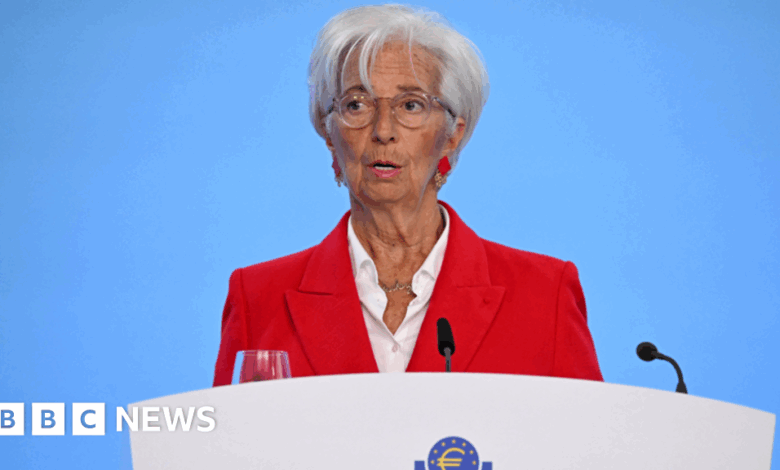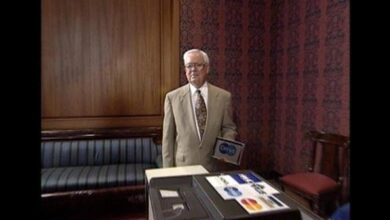Europe cuts interest rates as Trump’s tariffs loom

The European Central Bank (ECB) has made the decision to cut its key interest rate once again, marking the eighth reduction in just over a year. This move comes as the ECB issues warnings about the ongoing economic pressures faced by the eurozone, particularly in light of the trade policies implemented by US President Donald Trump.
The main interest rate has been lowered from 2.25% to 2%, a significant adjustment that will impact the countries within the eurozone. Despite a decrease in inflation rates across the eurozone, the overall economy has been struggling even before the introduction of President Trump’s aggressive tariff policies. These tariffs have not only caused uncertainty in the market but have also led to threats of retaliatory taxes from the wider European Union.
The ECB has acknowledged that the “uncertainty” surrounding trade policies will have a negative impact on business investments and exports in the short term. Additionally, the bank has expressed concerns that the stronger-than-expected economic growth of 0.3% in the first quarter of the year may weaken as the months progress.
President Trump’s recent decision to double tariffs on EU steel and aluminium imports to the US has only added to the economic challenges faced by the eurozone. While negotiations for a potential deal are ongoing, both the US and the EU have imposed tariffs on each other’s goods, further escalating tensions.
Despite these obstacles, the ECB remains optimistic about the medium-term outlook for the economy. The bank anticipates that European spending on defense and infrastructure will help boost economic growth in the coming months. Additionally, efforts by Nato to increase military funding among its members will contribute to strengthening defense in Europe.
In terms of inflation, recent data has shown a decrease in inflation rates across the eurozone, falling below the ECB’s 2% target. However, the bank predicts that inflation will stabilize around the target range between 2025 and 2027.
ECB President Christine Lagarde has emphasized the importance of higher incomes and a robust job market in driving household spending. She believes that these factors will make the economy more resilient to global shocks, although uncertainties remain largely due to trade policies.
As discussions around tariffs and defense spending continue, Germany’s Chancellor Friedrich Merz is set to meet with President Trump to address these issues. The pace of the ECB’s rate cuts has garnered attention from President Trump, who has praised the bank’s actions while criticizing the US Federal Reserve and its chair Jerome Powell.
In response to the ECB’s rate cuts, President Trump has called on the US Federal Reserve to follow suit and lower interest rates. Recent data indicating a slowdown in hiring by US firms and a contraction in the US economy have only fueled Trump’s demands for rate cuts.
As the global economic landscape remains uncertain, central banks and policymakers are facing challenges in navigating the impact of trade policies on economic growth and stability. The upcoming US employment statistics will provide further insights into the current state of the economy, with economists forecasting a modest increase in job numbers for the month of May.




